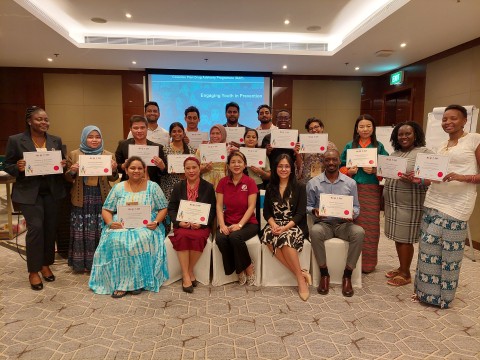The Colombo Plan’s Drug Advisory Programme (DAP) organised a Training of Trainers (ToT) on Engaging Youth in Prevention in Kochi, India, from 8th to 13th September, 2024. This training brought together drug demand reduction professionals from Africa and Asia to enhance their capabilities in engaging young people in effective prevention initiatives.
Our member, Wazha Dambe, had the opportunity to attend this training as the only representative from Botswana. The training curriculum focused on equipping participants with the necessary skills and knowledge to develop and implement evidence-based prevention programs tailor made for the needs of youth. The training covered areas including the science of prevention, the role of the youth in drug use prevention, tools for executing prevention projects, and becoming effective prevention influencers.
Participants learned about the importance of empowering young people to become active in their own prevention efforts by equipping them with problem-solving skills, communication abilities, and leadership qualities. The training aims to promote a generation of youth who are capable of advocating for their issues and driving positive change in their communities.
One of the most valuable aspects of the training was the opportunity to learn about effective prevention strategies and tools. Participants gained insights into evidence based interventions, best practices, and practical resources that can be applied to various situations. This knowledge will enable them to design and implement targeted prevention programs that address the specific needs and challenges faced by young people in their respective areas.
Furthermore, the training provided participants with the opportunity to network with other prevention professionals from across Africa and Asia. This exchange of ideas and experiences facilitated the development of collaborative partnerships and the sharing of best practices. This will help participants leverage on their collective expertise to create more impactful prevention initiatives.
All in all the successful rollout of this training will be an investment in a generation of youth who are empowered to make healthy choices. A special thank you to Ms. Angela Garcia and Prof. Grace Duka, for the facilitation and knowledge shared throughout the training. And gratitude goes to Ms, Dichen Choden, and the DAP, for organising and committing to make the training happen. Through you we can contribute to healthier and more resilient communities.

